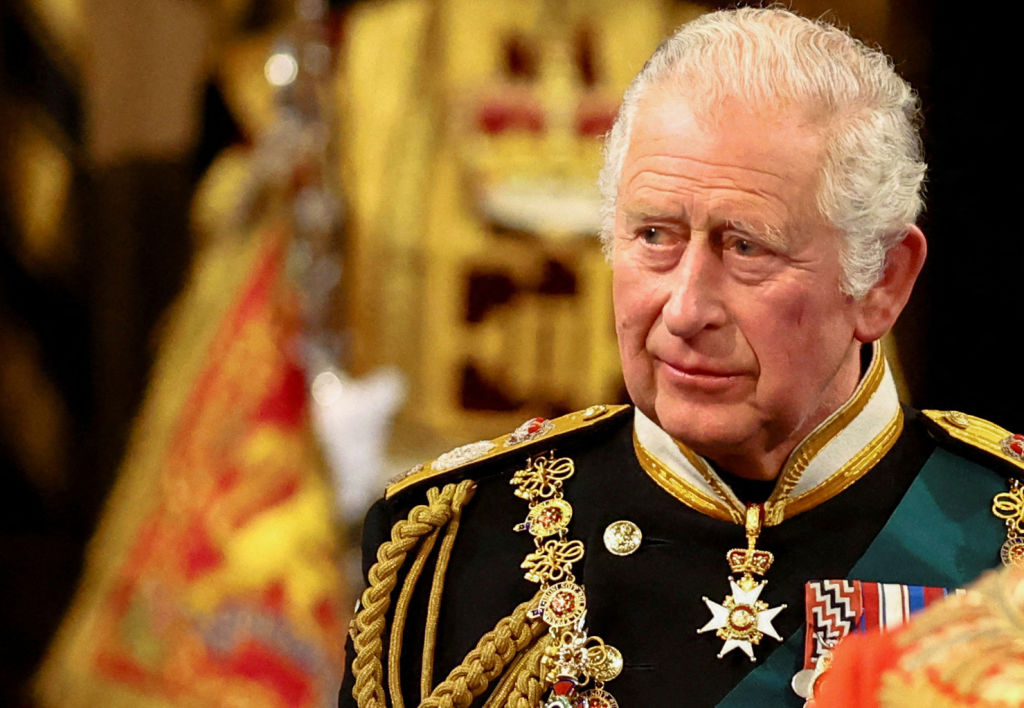Almost as soon as Charles III acceded to the throne last September, we began to hear whispers and speculation about what exactly his coronation would look like. Many of these stories were alarming to traditionally-minded people. The King wants a slimmed-down ceremony, with less flummery and fewer fancy costumes, insisted those ever-available knowledgeable insiders. Others fretted about his long-ago musing that he would like to be Defender of Faith, not Defender of The Faith (an important definite article, that). A few months ago, it was reported that the coronation procession would feature NHS key workers and representatives of the ‘Windrush generation’, those two mythic cornerstones of the implied national refounding in the years after the second world war. Only last week came the revelation that the procession would follow a much shorter route than that taken by Elizabeth II in 1953, a mile and a half compared to five miles.
Then someone dug up an old suggestion by the former Bishop of Oxford, Lord Harries of Pentregarth, that the coronation ought to include an Islamic prayer. Harries, a patrician liberal of the old school, mooted this idea nearly ten years ago, and there is no suggestion that it is being seriously considered this time round. Indeed, it is not at all clear that it would even be legally possible. Nevertheless, the stir it caused on social media does hint at a looming problem for the monarchy, viz. the difficulty of maintaining the legitimacy and credibility of an institution explicitly intertwined with the established Protestant Church of England, when the country as a whole is more religiously diverse than ever. We can fudge for now, but in 15 or 20 years’ time when William V begins his reign, the question will be even more acute than it is now. A 2018 study suggested that just two out of every 100 young people identify with the Church of England, and the 2021 census found that even nominal Christians – people who call themselves Christian – only make up 46 per cent of the population, compared to 59 per cent in 2011.
Some monarchists console themselves with the thought that back in the grand old days of Empire, British Christian monarchs were able to command the allegiance of millions of subjects from a huge variety of religious backgrounds. Now that many of those people’s descendants are living in Britain itself, runs the argument, a broad-minded Christian monarchy, tactfully avoiding anything that smacks of sectarianism, can be a focal point for unity and loyalty. And it does seem to be the case that the royals get a good reception when they visit Britain’s ethnic minorities. In the last few months, there have been wonderful pictures in the media of the King receiving a warm welcome from the Bangladeshi community in East London, and from Sikhs at a new gurdwara in Luton. Charles has a deep and long-standing interest in religious questions, and has been described as a perennialist, i.e. someone who believes that all religions are ultimately based on the same core truth. His book Harmony: A New Way Of Looking At Our World contains well-informed reflections on the ways in which different faiths have thought about beauty and sustainability. Perhaps, then, we will be able to muddle on in the same old way, without ever needing any Islamic or Jewish or Sikh prayers to be included in the coronation service.
The most likely threat to the sustainability of the monarchy in the century to come is not the existence of other religions in Britain, but rather the growth of unbelief, and the seemingly unstoppable trend for academics and other opinion-formers to take a hyper-critical attitude to the British past and to British traditions. It doesn’t help that the Palace seems determined to meet them halfway. Their abject attitude at the time of the Ngozi Fulani kerfuffle last November was an early red flag, while over the Easter weekend it emerged that the King had given the green light to an examination of the royal family’s complicity in slavery. That is just the kind of concession to the current mood which could be extremely dangerous if not handled carefully. It risks not only giving endless ammunition to the monarchy’s critics, and incentivising further attacks on the institution, but could alienate the royals’ natural supporters, who expect – not unreasonably – that the Palace will be a bulwark against constant attacks on our national heritage.
It is entirely fair for conservatives to be concerned about what exactly will happen when Charles is crowned less than one month from now. It will still look very grand, of course, with the glorious music and the gold coach and the cavalrymen in their gleaming helmets and breastplates. The ancient words and rituals will work their magic – maybe this time we will be allowed to watch the anointing on television, as our grandparents were not allowed to do in 1953, because of its enormous mystical importance.
But there remain, for some, those nagging doubts; the worldly ones about the scale of the ceremonial and the lack of aristocratic regalia, and the more intangible, spiritual concerns. Can this all last? Do enough of us really believe in the true spiritual power of what will be said and done in Westminster Abbey on the sixth of May?
Join The Spectator's Fraser Nelson, Katy Balls and guest Camilla Tominey from the Daily Telegraph for a special edition of Coffee House Live covering what kind of monarch Charles III will be, and whether the coronation will distract voters from the Tories’ predicted heavy losses in the local elections. 10 May from 7pm. Book your tickets today: spectator.co.uk/coronation






Comments